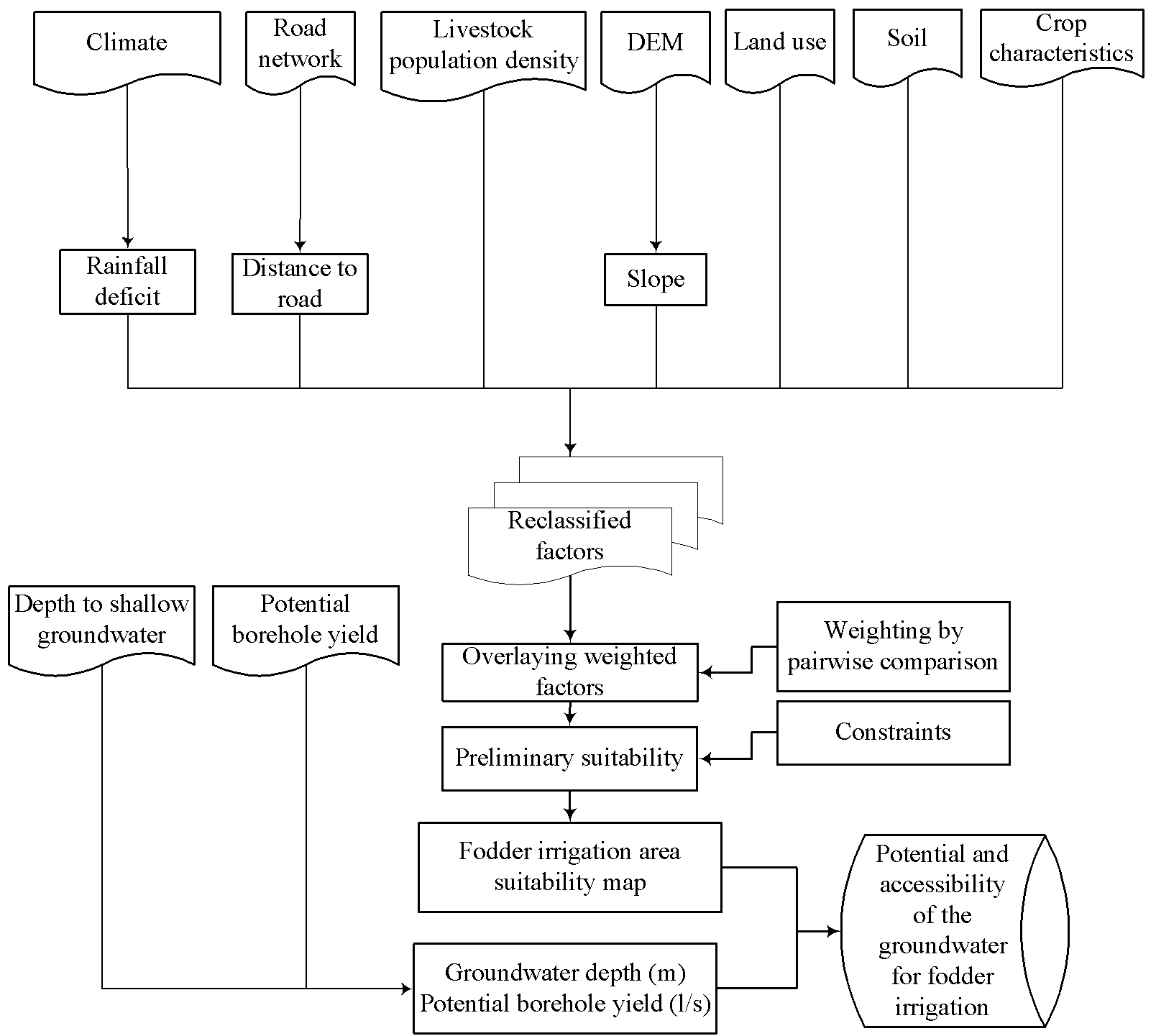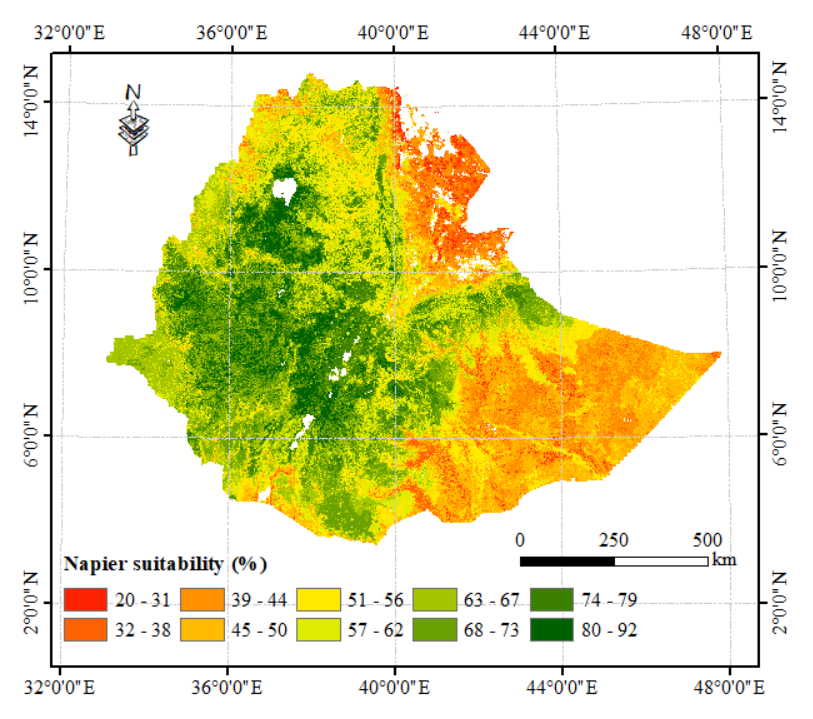Project in Ethiopia
Application of integrated decision support systems to improve livestock systems in Ethiopia: Research and capacity development
Timeframe: May 2019 - December 2020
Funding: USAID
Principal investigator (PI) and lead institution
Raghavan Srinivasan, The Texas A&M University System
Co-PI and collaborator institutions
Neville Clarke, The Texas A&M University System, and Senior Advisor to the Feed the Future Innovation Lab for Small-Scale Irrigation
Other collaborators:
- Seifu Tilahun, Associate Professor and Director to the Bahir Dar Institute of Technology, Bahir Dar University, Ethiopia
- Mr. Belete Bantero, Senior Transformation Agenda Specialist, Ethiopian Ministry of Agriculture and Livestock (MoAL)
Results
Journal Articles
- Bizimana, J.-C., Derseh, M.B., Adie, A., Kiker, G. 2023. Simulated economic and nutritional impacts of irrigated fodder and crossbred cows on farm households in southern Ethiopia. World Development Perspective Volume 31. https://doi.org/10.1016/j.wdp.2023.100517
-
Worqlul, A.W., Dile, Y.T., Bezabih, M., Adie, A., Srinivasan, R., Lefore, N. and Clarke, N. 2022. Identification of suitable areas for fodder production in Ethiopia. CATENA, 213, p.106154. https://doi.org/10.1016/j.catena.2022.106154
- Worqlul, A.W., Dile, Y.T., Schmitter, P., Bezabih, M., Adie, A., Bizimana, J., Srinivasan, R., Lefore, N., and Clarke, N. 2021. Constraints of small-scale irrigated fodder production and nutrition assessment for livestock feed, a case study in Ethiopia. Agricultural Water Management, Volume 254, 106973. https://doi.org/10.1016/j.agwat.2021.106973
More Results
-
Research Brief (ILRI). Worqlul, Abeyou W., Dile, Yihun T., Bezabih. M, Adie. A, Jones, C., Bizimana, Jean-Claude, Srinivasan, R., Lefore, N., and Clarke, N. 2021. Identification of suitable fodder production areas using irrigation from shallow groundwater in Ethiopia. Nairobi, Kenya: ILRI.
- Research Brief. September 2020. Simulated Economic and Nutrition Impacts of Irrigated Fodder and Crossbred Cows on Households in Lemo Woreda of Ethiopia
- Research Brief. August 2020. Identification of Areas Suited for Fodder Production in Ethiopia
- Research Brief. August 2020. Estimating Water Resource Availability to Produce Livestock Fodder in the Rainfed Agricultural Land in Ethiopia Using Small Scale Irrigation
Project Plan
Small-scale farmers across Ethiopia struggle to provide sufficient, high-quality feed for their livestock. There is also confusion about what fodder crops will grow best in a given region. By resolving such issues, food security for consumers will improve as the livestock system becomes more productive and resilient.
Building on progress of the Feed the Future Innovation Lab for Small-Scale Irrigation in Ethiopia, this project used Integrated Decision Support Systems (IDSS) to study improved forages, livestock feed crops, their production, and environmental and socio-economic impacts. It reviewed feed strategies for on-farm production and market sale of fodder crops cultivated under small scale irrigation. This project complemented our modeling work in Future Livestock Systems.
The IDSS is a suite of biophysical and socio-economic models, namely, the Soil and Water Assessment Tool (SWAT), Agriculture Policy Environment eXtender (APEX), and Farm Income and Nutrition Simulator (FARMSIM). These models will investigate Ethiopia’s main fodder crops for poultry, cattle, or small ruminants, namely, Napier (Pennisetum purpureum), alfalfa (Medicago sativa) and desho (Pennisetum pedicellatum). Other analysis will investigate Elephant grass (Pennisetum purpureum Schumach), mixed vetch (Lathyrus cicera), and oats (Avena sativa). Several livestock technologies and strategies will be analyzed to identify and evaluate systems that increase feed production and quality in Ethiopia.
Objectives
This project intended to:
- demonstrate IDSS as a solid methodology for assessing livestock research
- prepare for using IDSS methods in new research of the Feed the Future Innovation Lab for Livestock Systems
- assess forages and livestock feed crops in terms of production, environment, and socio-economic impacts
- evaluate farmer strategies for using feed
- promote Human and Institutional Capacity Development in the livestock sector.
More Information
 October 2020 research update SRINIVASAN VGM (Virtual General Meeting)
October 2020 research update SRINIVASAN VGM (Virtual General Meeting)







